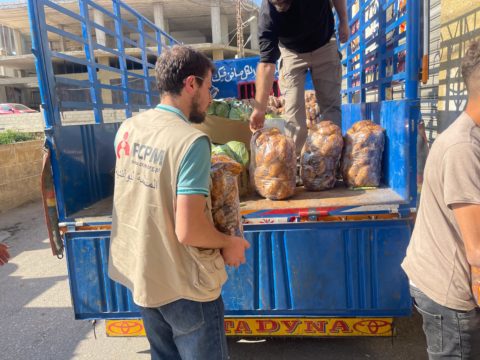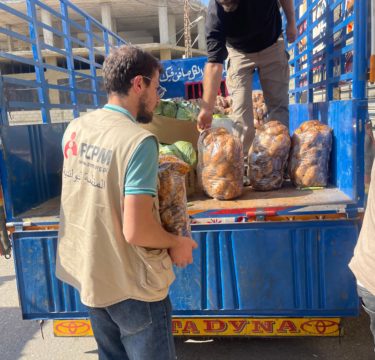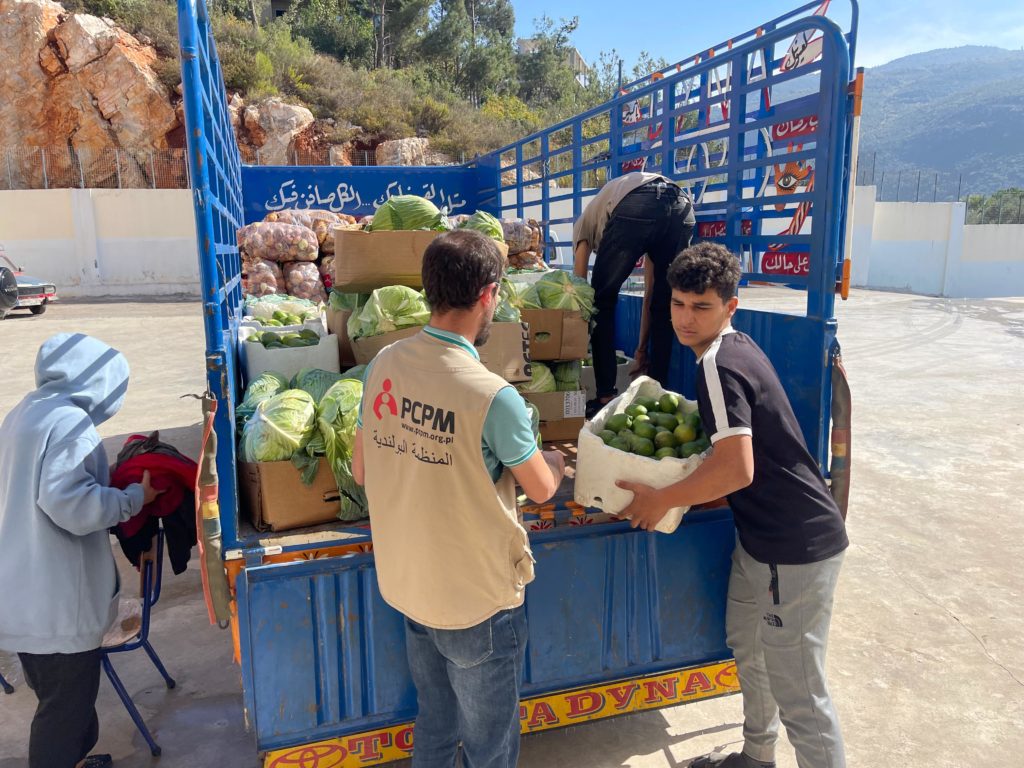“Our villages and homes have been completely destroyed”. PCPM helps Lebanese refugees


Over 850,000 people have had to flee their homes since the beginning of the conflict between Hezbollah and Israel. Over 70,000 people have already fled to the Akkar province (northern Lebanon), where the Polish Center for International Aid (PCPM) is helping.
The conflict has been going on for over a year, but it intensified particularly in September 2024. Thousands of people have had to flee fearing for their lives. Since October 8, over 3,000 people have died and 13,000 have been injured.
The Lebanese authorities have asked the PCPM Foundation to provide assistance to a “humanitarian zone” in the area of several municipalities in the northern part of the country in the Akkar province. PCPM provides shelter, food, hygiene products, and installs kitchens in collective accommodation centers where refugees from the south stay. People come to such places with their entire families and without anything. Evacuation alerts come suddenly, often at night, and families sometimes have only 20 minutes to get 500 meters away from their place of residence.
“I fled from southern Lebanon, where it is very dangerous. Unfortunately, the bombings intensified. At first I fled to Beirut, where I lived near the Dahieh district, but these areas were also bombed,” says Ahmad, a resident of the refugee center in Akkar.

There are over 1000 people in the center, for which PCPM is responsible. PCPM equipped kitchens in 8 shelters and provide kitchens with food. The PCPM Foundation prepared over 20 thousand pieces of hot meals, 400 kg of rice, 200 kg of lentils, 400 kg of beans, 320 boxes of spaghetti, 150 liters of vegetable oil, 120 kg of tomato paste, 50 kg of butter for cooking, 4 tons of fresh vegetables, 250 whole chickens and 120 kg of meat.
“We opened this center to receive refugees 28 days ago. Now it hosts 180 people. Most donors and organizations that provided supplies unfortunately can no longer continue to provide assistance,” says Youssef Berri, principal of the Meshmesh public school.
“Only the Polish Center for International Aid continues to provide food and all the basic items we need. We are especially grateful for equipping the shelter with a kitchen,” adds the school principal.
Berri emphasizes that while the aid point is fully dependent on PCPM support, they will not be able to continue working without it.
Winter aid
“Most of us left our homes with only the clothes we were wearing. We have no money. We really hope that this war will end soon and that we will find a way to start a new life, as our villages and houses have been completely destroyed. The needs on the spot will be overwhelming because the war spares nothing, neither people nor stones – says Ahmed.
Akkar is located at about 900 meters above sea level and the winters there are intense. The school principal Youssef Berri is most concerned about the heating and consequently the lives of the children in the center.

– We need fuel for heating, without which it is impossible to live here. People here are exposed to diseases due to the low temperatures. Appropriate clothing is also essential. Sometimes I see people having to huddle together to keep warm. Without funds to cover the costs, we will not turn on the central heating – says the school principal. – We are especially afraid for the health of the children.
– You see how I am dressed – comments Ahmad – we ran away from home with what we had, in short sleeves. Our clothes are not suitable for frost and winter. Especially the nights are extremely cold – he adds.
PCPM in Lebanon
The Polish Center for International Aid Foundation has been continuously implementing aid projects in Lebanon since 2012. Right on the border with Syria, PCPM runs the largest humanitarian aid program implemented by a Polish non-governmental organization. As the only Polish organization registered in Lebanon, it has been helping victims of the war in Syria since the beginning of the crisis, as well as Lebanese families affected by the effects of the largest economic crisis in decades.